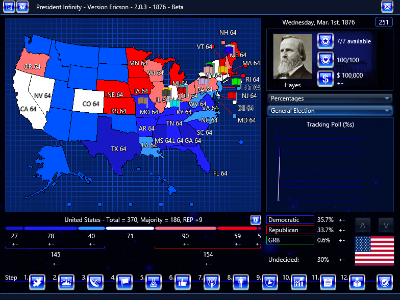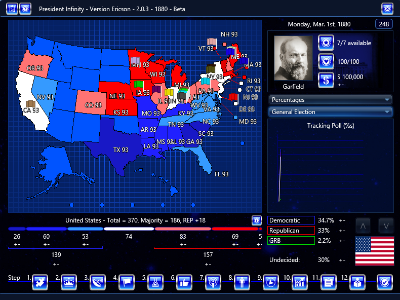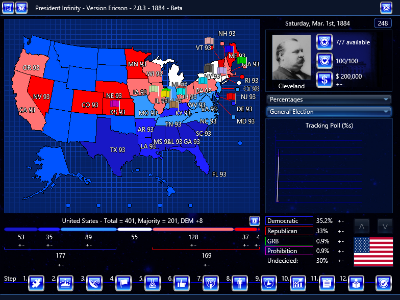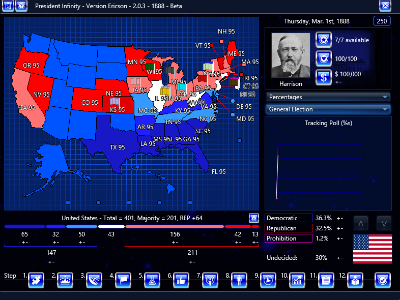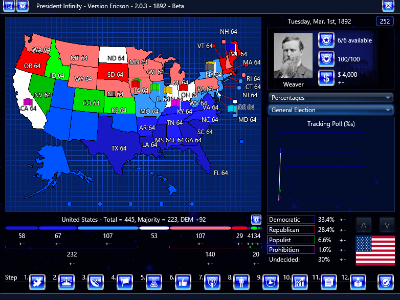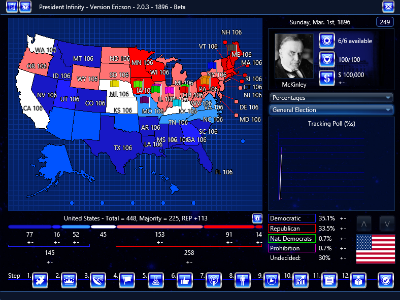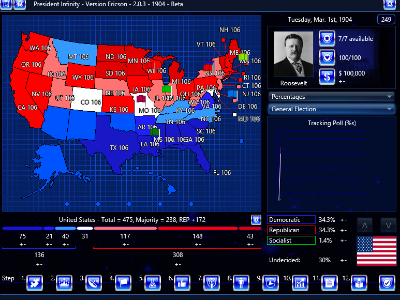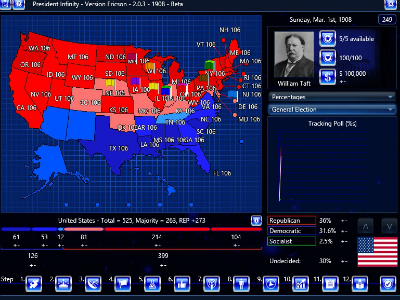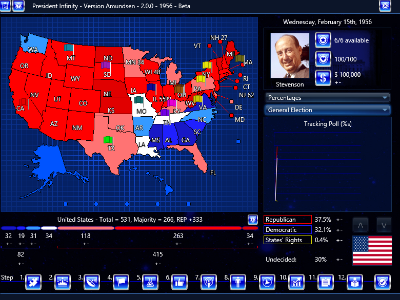*This election was updated by the Historical Scenario Commission on August 15, 2017, and can be downloaded here: United States – 1876 v 2.0
The 1876 election is one of the most controversial elections in history. Reconstruction was winding down, which meant the Southern White conservatives were regaining political power from the Northern Republicans, and some African-Americans, that had replaced them following the Civil War. As such, many of those in power prevented African-Americans, and even White. Meanwhile, the Republican party was accused of controlling the election in the South, partially through the governors still in place from Reconstruction. This lead to a constitutional crises called the Compromise of 1876.
However, leading up to this election, the main issue was whether or not President Ulysses S. Grant would run for a 3rd term. Most people expected him to run, but his advisers convinced him not to, as James G. Blaine’s Half-Breed (moderates) seemed set to win, due mostly to Grant’s corrupt administration. With Grant out of the picture, Democrats expected to have their first shot at the presidency since the 1856 election, and only four years after the Democratic Party’s collapse in 1872. It should be noted that this election takes place 100 years after the founding of our country.
For Republicans, James G. Blaine emerged as the new front-runner. However, he had his own scandalous past that would not be overlooked. Benjamin Bristow promised to be the reform candidate, as he had helped Grant clean out much of the corruption in his administration. Oliver P. Morton and Roscoe Conkling ran as the Radical Republican options, which still wanted to punish the South. Other candidates contested the nomination as well, but the most promising is Ohio governor Rutherford B. Hayes, who was a known reformer and moderate.
The Democrats, emboldened by the reestablished former Confederate base, decide to nominate conservatives for their ticket. The nearly unanimous top choice is Bourbon Democrat Samuel J. Tilden, a strict constitutionalist, pro-business, pro-Gold Standard democrat from New York. The two distant rivals are main-line Democrat Thomas Hendricks and the politically ambiguous Civil War general Winfield Scott Hancock. Other candidate are also in the race, but have an uphill battle.
The Greenback Party led by the wealthy industrialist, Peter Cooper, is the 3rd party option. Although from New York City, his base is mostly in the Midwest and West.
This election allows for many what-if scenarios:
- What if President Grant decided to run for a 3rd term, despite being advised not to?
- What if Civil War general and Vermont Senator Ambrose Burnside decided to be the Republican military officer option for the presidency?
- What if Civil Rights activists pushed Frederick Douglass to run?
- He received some token delegates in later ballots for the Democrats, what if Conservative Democrat Allen G. Thurman had made an effort to run for the presidency from the beginning?
- What if two recent former nominees, Civil War general George B. McClellan and Horatio Seymour, attempted to run for the nomination again?
- What if the Southerners pushed two former Confederates for the Democratic nomination? Both Civil War general John B. Gordon and former Confederate VP Alexander Stephens were sitting US politicians during this election.
Feedback is desired.

